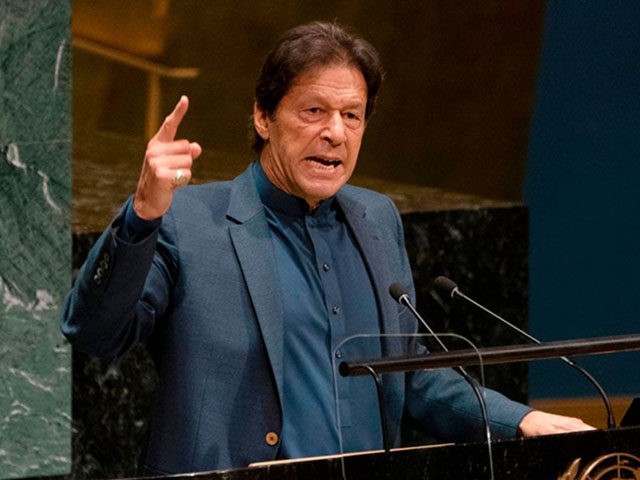The Pakistan Telecommunications Authority (PTA) on Friday blocked the controversial Chinese video streaming app TikTok because it allegedly failed to filter “immoral and indecent” content — Prime Minister Imran Khan was reportedly involved in the decision.
According to the PTA, “a number of complaints from different segments of society” were made about “immoral and indecent” content shared on TikTok. The PTA issued a “final warning” about “obscenity, vulgarity, and immorality” to TikTok in July, when another streaming app called Bigo was banned on similar grounds.
A few weeks before that, the PTA banned the popular online videogame Player Unknown’s Battlegrounds (PUBG) over complaints that it was “addictive” and harmful to the physical and psychological health of children. Critics asserted the PTA had no legal powers to ban an application on those grounds.
The PTA used similar language when it denounced TikTok for its “extremely negative effects on society in general and youth in particular.”
The Pakistani government wasted no time implementing its decision. The TikTok app went completely blank all across Pakistan within minutes of the PTA’s announcement. The PTA said it would be willing to reconsider its decision “subject to a satisfactory mechanism by TikTok to moderate unlawful content.”
The PTA has been somewhat vague about exactly what sort of offensive content TikTok is allowing, although a spokesman for Prime Minister Khan cited the “exploitation of female TikTokers” and “the objectification and sexualization of young girls” when the final warning was issued in July.
Reuters reported on Friday that Prime Minister Imran Khan “took a keen interest in the issue” and has been urging Pakistani telecom agencies to work harder at blocking immoral content.
“PM Imran is extremely concerned about the growing obscenity and vulgarity in the society and has directed all the relevant sections to stop the trend before it destroys the socio-religious values of Pakistani society,” Information Minister Shibli Faraz said in a September interview.
“He is a man who has spent his life in the West and thus understands the strength of our social and cultural values, which must be protected,” Faraz said of Khan.
The information minister summarized the Khan administration’s approach to indecency as, “What I wouldn’t want my own daughter to do, I will not allow to be done by someone else’s daughter and sister.”
“We have been in regular communication with the PTA and continue to work with them. We are hopeful to reach a conclusion that helps us continue to serve the country’s vibrant and creative online community,” TikTok said in a statement about the Pakistani ban.
“We have robust measures to help ensure a safe and welcoming platform for users, including easy mechanisms to report content that violates our terms of use and comprehensive Community Guidelines, which are available in Urdu,” the company said.
TikTok counts Pakistan as one of its largest markets worldwide. Company representatives claimed over three million videos have been deleted from its Pakistani network for violating community guidelines.
Critics of the PTA’s decision accused the government of scapegoating the streaming service for widespread social problems, as in the case of assassinated former prime minister Benazir Bhutto’s daughter, Bakhtawar Bhutto-Zardari:
“The government blocking an entertainment app that is used by millions of people, and is a source of income for thousands of content creators, especially those coming from smaller towns and villages, is a travesty to democratic norms and fundamental rights as guaranteed by the constitution,” said internet rights advocate Usama Khilji.

COMMENTS
Please let us know if you're having issues with commenting.